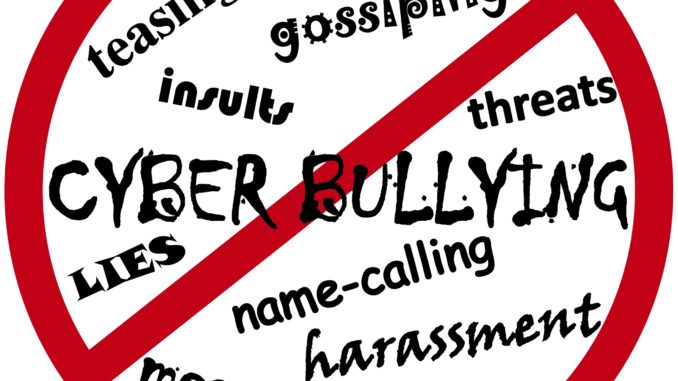
Bullying is common and is a real problem amongst young people. Out of 13,387 children surveyed by online charity Ditchthelabel.org in their 2020 survey, over 25% had experienced bullying and 26% had witnessed bullying. This is a 25% yar on year increase from the 2019 survey. A very worrying trend. More information can be found at www.ditchthelabel.org
How to spot signs of cyber bullying
Children who are affected by any form of bullying will normally display obvious changes in their behaviour and attitude such as appearing sad or aggressive or anxious. They may demonstrate outbursts which would be out of character for them. A child may become withdrawn, spending more time alone and isolating themselves from certain groups or situations. They may make excuses to stay off school. Attendance and attainment will be lower. They may lose interest in hobbies or activities.
What can cyber bullying lead to? (low self-esteem, poor school attendance, poor appetite, etc.)
People tend to be bullied if they display or behave different to what would be considered the norm. We are encouraged to be different and should celebrate that. We need to empower our children to be able to dream and dare to be different. Children who frequently bully others are more likely to drop out of, or be expelled from school, engage in criminal behaviour, develop depression or anxiety and be abusive towards their partners, spouses or children as adults. Victims may also go on to bully others as a way of dealing with their own circumstances.
How can cyber bullying be addressed?
There are numerous local and national organisations and charities, including NSPCC, Barnardos, Kidscape, Bullybusters, Ditchthelabel.org and more who offer workshops, advice, support, training to families, young people, parents and professional to help deal with the effects of and support victims and perpetrators of bullying.
Through PSHE education in both primary and secondary, schools can be at the forefront of dealing positively with Bullying. Awareness raising campaigns using real case studies where people are willing to talk about their experiences and impact of cyberbullying on them are a real benefactor.
Social network companies can take a more robust effect in general when dealing with reports of cyberbullying to tackle offenders by working more closely with law enforcement and support groups where necessary.
Steps to prevent cyber bullying cases.
If your child tells you (or someone) they are being bullied (or know someone who is) Believe them. Praise them for having the confidence to tell you as this is really hard to do. Remember that this happens to lots of children every day. Remember these 3 simple tips:
- Save the evidence
- Block people
- Look at child’s friend list
Speak with someone in school who you can keep as your single point of contact such as the year leader or mentor and work closely with them. Do not keep your child off school, no matter how hard it seems. This will not give the school the opportunity to solve the problem. Things will get better. Have open conversations with your child and keep in regular contact with the school.
Work with your child on coping strategies. Help them to build their confidence. Bullying is a problem but the biggest problem is not talking about it! They have the ability to solve the problem.
As parents we should not take charge of solving the problem, as we generally do as adults, but should ask your child how they want you to help them to stop it from happening. Give them the power and confidence and encourage them to make that change knowing that they have your full support.
